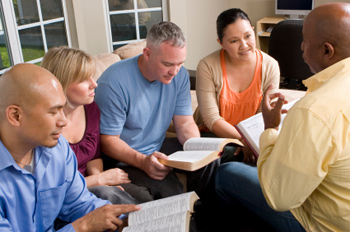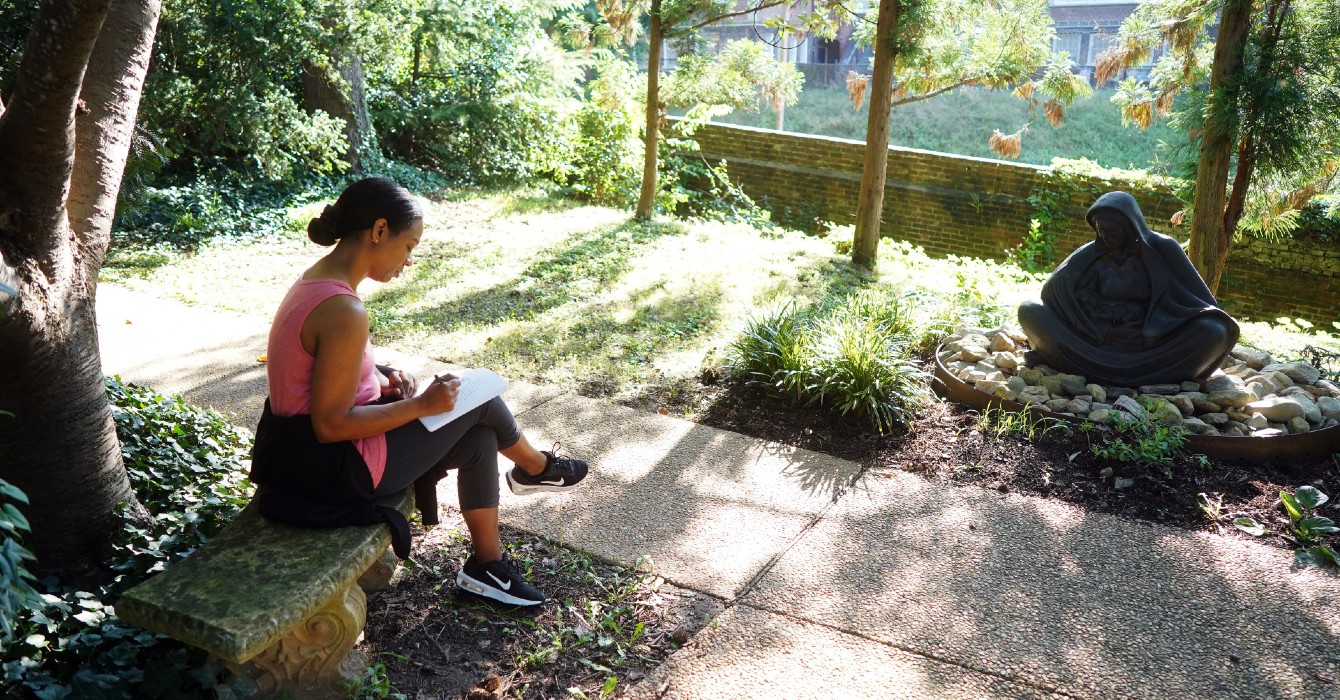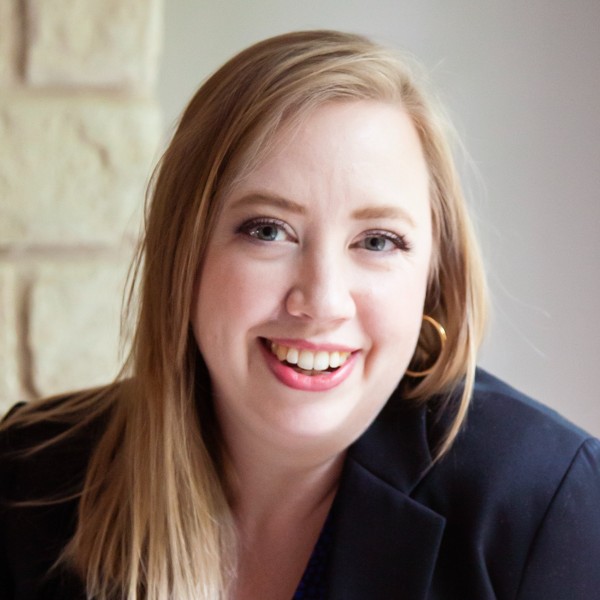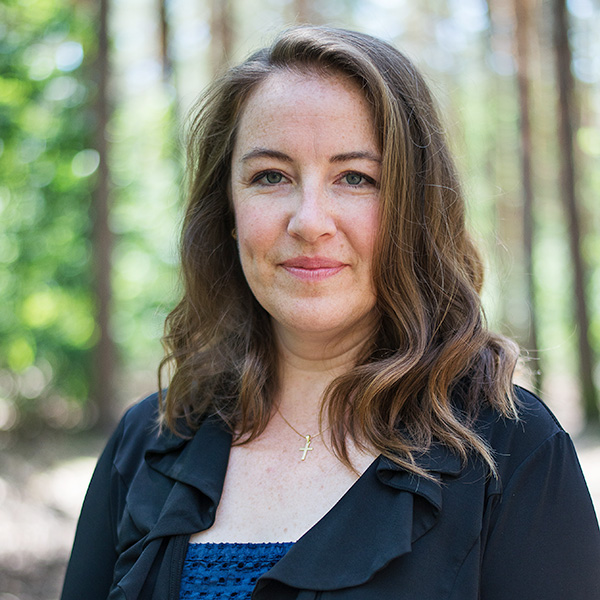Editor’s note: This excerpt is adapted from “So Much Better: How Thousands of Pastors Help Each Other Thrive,” by Penny Long Marler, D. Bruce Roberts, Janet Maykus, James Bowers, Larry Dill, Brenda K. Harewood, Richard Hester, Sheila Kirton-Robbins, Marianne LaBarre, Lis Van Harten and Kelli Walker-Jones.
In the book, the authors examine the effects of the Sustaining Pastoral Excellence (SPE) initiative, which was launched by Lilly Endowment Inc., and offer profiles of seven pastoral peer learning models.
“Our hearts are like April. Waiting for the green we want to see.”
-- Jeff, senior pastor, Third Christian Reformed Church, Maine
When a group of young church planters discussed the idea of a peer group focusing on finding “Green Space” in their busy lives, they did not expect very much. They were not even sure that their idea would be accepted by the Christian Reformed Church’s peer group program. But it was approved, and the experience led to deepened relationships and strengthened ministries.
At a regional church gathering, a fellow pastor shared about his own peer group experience. A seed was planted, and some months later, six pastors made a commitment to seek out their own Green Space. What’s surprising is that most of them were new to the denomination. They didn’t even know each other very well. …
As these pastors developed a proposal together, they took to heart the encouragement to be creative and to “think outside the box.” They wanted to focus on spiritual disciplines. They planned to fast, meditate, pray, share solitude, and practice Lectio Divina -- which is an ancient approach to prayer and Scripture reading. Hiking and a ropes course that focused on spiritual formation were also on the docket. And they wanted time “just to hang out.” Their destinations included Maine, New Hampshire, Massachusetts, Martha’s Vineyard, and Vermont.
Their plan was truly unique. The denominational team was excited about it and awarded the requested funds. The group was thrilled and grateful. Thomas, a pastor in Maine, said, “I don’t know of any other denomination or group of people that would have seen the value in this and helped us do this.”
No one person was the leader of the group. Each pastor was responsible for an outing and all the details associated with it. The same was true for the teaching and practice of spiritual disciplines. Since leadership is integral to the pastoral role, however, knowing how and when to lead was a challenge. As Ben, pastor of Calvin Christian Reformed Church in Massachusetts, put it, “One of the most important things I’ve learned is when to take the lead and when to not take the lead.”
Both group and individual goals were identified while on a wilderness hike. Hiking enabled the pastors to find the space and time for prayer and reflection. Individual goals included memorizing a New Testament book, spiritual journaling, times of solitude, and Bible reading. “My journaling and solitude time [were] some of the most intense moments I’ve had with God in quite some time,” reported Rob, a pastor in New Hampshire.
Several months into their journey, the group found that their greatest challenge was getting together. All of them were married. Five of the six group members had children at home. Four of the six were bivocational, and all had demanding pastorates. When they initially designed their Green Space journey, they decided to meet once a month for a year. Some meetings took place over the phone, but most were overnight excursions.
When someone was missing from the group, it affected everyone. Ben said, “Rob wasn’t able to make our last trip. That definitely affected the connections.” So in an effort to maintain closer connections, they decided to contact each other between group meetings. They also participated in an online forum, allowing for ongoing conversations, sharing, and relationship building.
Accountability for tending their Green Space was up to the group. It was carried out in several ways. Members shared about their journaling in phone calls and by e-mail. They talked intentionally about their spiritual journeys and each member’s next steps. Ben and Blake chose to focus on Bible reading and memorization. Together they created a covenant and held each other accountable. This was fine with the rest of the group because each was free to practice spiritual disciplines in the way that suited him best. Indeed, the freedom to design their experience resulted in excitement and ownership.
Pastors spending time in Green Space saw gentle breezes, pounding rains, and brilliant sunshine. A sense of community quickly developed, which blossomed into trust and safety. The group was a place where the pastors could be themselves. As Blake, pastor of a Massachusetts congregation, explained, “We can enjoy the joys, but we also get to really feel the low points as well.” …
They were encouraged by time spent with men who were once colleagues but now friends. “The openness really helped me feel like these were going to be people actually meeting together and having relationships,” Marc, pastor of Channel Christian Reformed Church in Maine, explained. They had someone to go to: one who understood them. So they felt less isolated in their ministries. They learned that there is grace, and therefore they should not be so hard on themselves. “We had a Band of Brothers,” Jeff concluded, “with whom we could pray, speak, laugh, eat, drink, be merry and real.”
Ben discovered a new path for his ministry in his peer group. He became interested in ministering to men, which was something he had not focused on before. He wanted to “walk alongside them” in a coaching relationship. Another group member concluded, “I feel like I just dramatically adjusted the way I pastor.”
Together these pastors experienced improved health -- spiritual, emotional, mental, and physical. They shared honestly and deeply, and reveled in their time with God. “Time for me, time for each other, time for God. How can you beat that?” they said. “Green Space is good.” …
The Creation of Green Space
In 2003, the Christian Reformed Church in North America initiated a peer learning program. Its purpose was to gather pastors in community to learn, grow, support, and pray. Sustaining pastors holistically was the key. Six marks of ministry were identified and believed to be evidence of a well-lived pastoral life. The peer learning program would address lifelong learning, accountability (caring for one another), ecclesiological leadership, pastoral and emotional intelligence, and a healthy spiritual life. Contrary to most development opportunities in the denomination, pastors would form and design their own learning. We believe this agency and freedom are essential to the program’s success. …
… Members have freedom to explore learning based on interests; choose the community with whom they will learn; determine individual and group goals; determine the accountability structure and meeting schedule; and creatively put the whole package together. Add to this a rich measure of grace for carrying out the proposed plan: if things do not go as expected, then the group can rework as needed.
In our experience, these ingredients were, and still are, the nourishment necessary for pastors to experience Green Space. Living water flows from such places and renews pastors, their congregations, and their families.
What’s Needed for Flourishing Green Space
When our pastors first look at the process for forming a peer group, they are pleasantly surprised that it focuses on what they want. The “what do you want” opportunities far outweigh the “what you must do” requirements. This imbalance is intentional. …
Shared leadership. What happens when you get a group of pastors together -- all of whom are used to taking the leadership role -- and no one is allowed to be the leader? For some pastors, this is the most difficult program requirement. They feel compelled to identify a leader when drafting a group plan, despite clear instructions that stress peer learning.
Peer learning and shared leadership go hand in hand. To learn from peers, everyone needs to be on the same level. One person is not expected to be the teacher while the rest are students. Our assumptions are that each group member has knowledge, wisdom, and experience and that all can learn from one another. Some may have more or different experiences, but that is precisely why group members need each other. Colin, a New Jersey pastor, explains, “We have enjoyed the wide range of experience and background of our group and the interaction that results-- the wisdom of ‘Grandpa Hans’ and the freshness of ‘Baby Colin.’” If learning is to occur in a peer environment, shouldn’t leadership reflect that?
We believe that church leadership is servant leadership. Jesus modeled this ecclesiology of leadership during his ministry. By sharing leadership, pastors in a peer group are displaying servant leadership.
We also see shared leadership as a freedom. One person is not burdened with the responsibilities for all the Green Space gatherings, which would be a daunting task. Pastors are able to share their areas of giftedness and sit back and enjoy the giftedness of others. Recently a peer group went on a weekend retreat and it did not take too long to learn who did not have the gift of cooking!
Shared leadership does not guarantee problem-free leadership. It is a process, and it requires time and patience. As described, working with a shared leadership model is a stretching experience for some pastoral leaders and when stretching takes place, so does learning. …
Once Again Green Spaces
Pastors need Green Space in their lives and ministries. They need such space in their nonstop world of meetings, sermons, visiting, counseling, and the multitude of other activities in which they are engaged. The Christian Reformed Church discovered that several key components are necessary for a renewing peer group experience. They are freedom to design the group plan and make changes to it; shared leadership so the experience is really a peer one; learning that is both intentional and unintentional; a community in which grace abounds; accountability that expresses deep care; and spirituality that nourishes mind, body, and spirit. By taking these ingredients, adding parish pastors, sprinkling in financial resources, and surrounding it all with grace-full denominational support and encouragement, pastors are renewed.
Peer groups are very good. Many participants would say they are excellent! Peer groups in the Christian Reformed Church are highly desired. Some pastors say they are a must in order to sustain themselves and flourish in ministry. Pastors are renewed in their calling, character, commitment, energy, faith, health, practices, and relationships. Congregations are seeing refreshed and healthier pastors. Families are enjoying the positive effect the peer group is having on their husband or wife, their parent, their pastor. Church councils are encouraging their pastor to get involved in a peer group.
The Christian Reformed Church in North America is eager to continue supporting pastors through peer groups because of the tremendous, positive impact. Comments like these say it all: Green Spaces are a “career saver” and “one of the best things our denomination has done.”
So Much Better: How Thousands of Pastors Help Each Other Thrive (Chalice Press). Copyright © 2013. Used with permission. All rights reserved.









